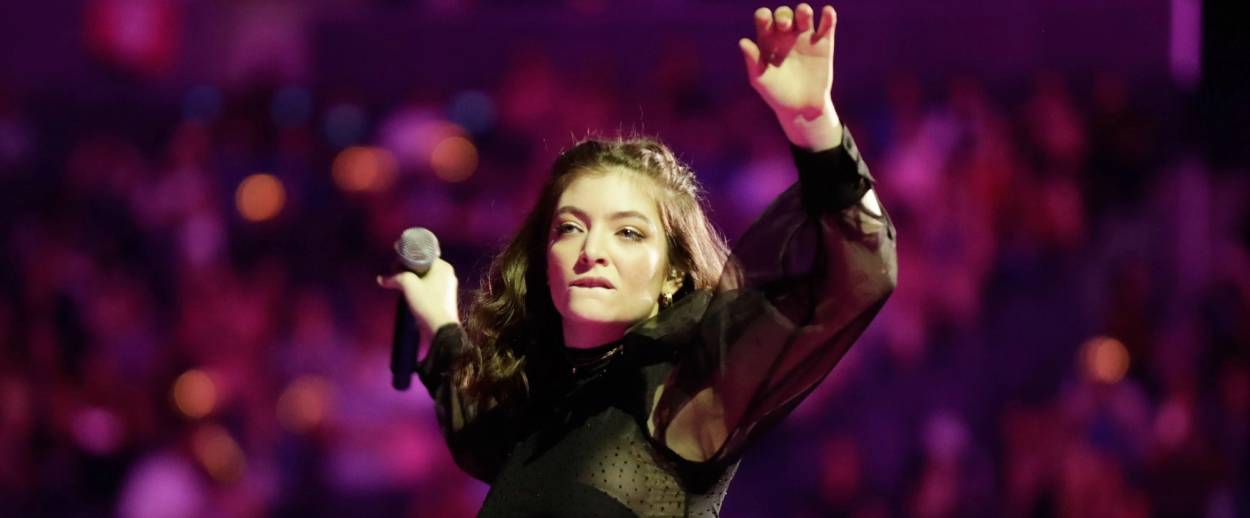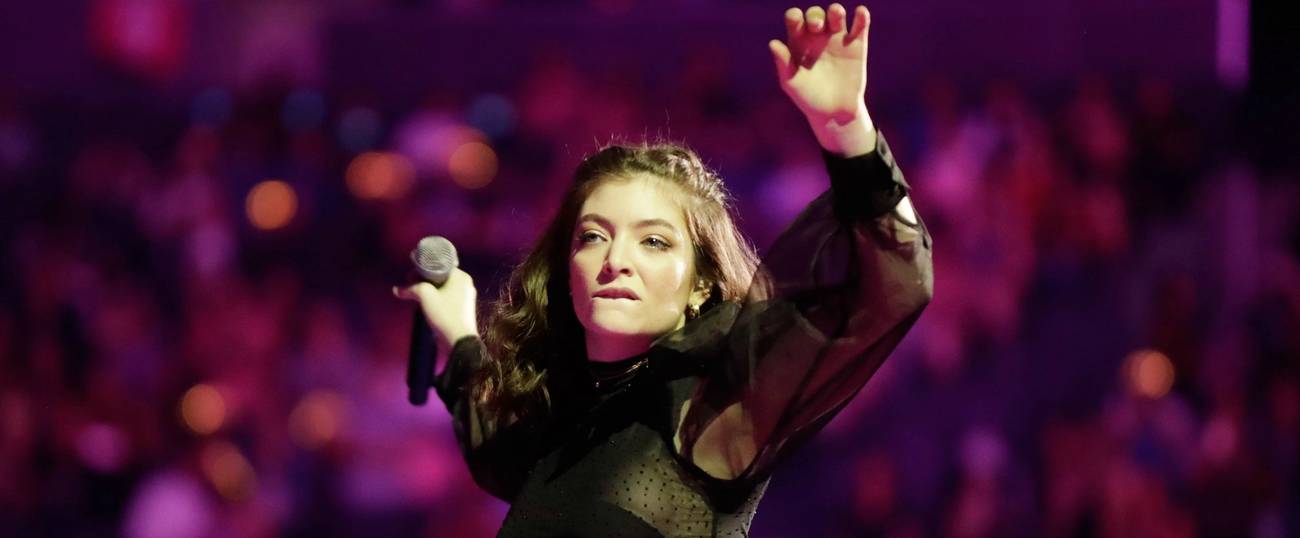If Lorde Is Serious About Her Politics, She Shouldn’t Boycott Israel But Her Native New Zealand
Offended by colonialism, wanton land theft, and an ongoing discrimination of an indigenous population? Say goodbye to Wellington, not Tel Aviv.




Lorde, the 21-year-old singer and songwriter, canceled her scheduled performance in Israel this week, succumbing to pressure from advocates of boycotting the Jewish State. “I pride myself on being an informed young citizen,” she announced on the platform for informed young citizens, Twitter, adding that she “had done a lot of reading and sought a lot of opinions” before making her decision.
’Tis the season to be jolly, so let us not accuse the young chanteuse of being flippant. Sure, the reading she’d done and the opinions she’d sought apparently had little to say about Israel being the world’s only Jewish state, established in the aboriginal homeland of the Jewish people after millennia of exile, genocide, and discrimination. Nor was she apparently informed that said state, its imperfections aside, is the region’s only spot where women are equal to men, where gays serve in the parliament rather than being tossed off of tall buildings, and where Muslims vote in free elections free of sectarian violence. Those books she read and those folks she consulted were, I take it, disinterested in the complications of two decades of diplomatic negotiations, uncaring about Israel’s many meaningful peace offers, and oblivious to the campaigns of mass terror the Palestinians unleashed frequently and at a deadly cost.
But never mind all that. there’s something sweet, even admirable, about the moral stridency of youth, no matter how off-key. Lorde is a talented young woman, and I admire her music as well as her commitment to her principles.
Providing, of course, that they are principles and not craven submission to bigots who cunningly market their noxious hatred as a fashionable ideological accessory. How do we tell the difference? Simple: If Lorde is truly committed to the principles she now espouses, she should announce her refusal to perform in or return home to her native New Zealand, a country that is guilty, in spades, of the crimes BDS supporters falsely attribute to Israelis.
Is Lorde a foe of colonial occupation? She should know, then, that in 1831, fewer than 1,000 Europeans were living in New Zealand, foreigners vastly outnumbered by the local Maori tribes. Fifty years later, that number skyrocketed to half a million, courtesy of British policy that encouraged settlers to sail to distant shores and remain there. Unlike the Jews returning to their homeland around the same time, these colonialists had neither a historical nor a legal claim to the land.
Does Lorde abhor violent land theft? Unlike the Jews, who returned to Palestine and set up the Jewish National Fund and other organizations in order to fairly purchase their historic homeland from its occupants, the British colonialists had a spot of fun in 1863, ordering all Maori to lay down their arms and passing the New Zealand Settlements Act, which enabled them to thieve 4 million acres of Maori land without even the pretense of due process.
Might extreme segregation and hate offend Lorde’s sensibilities? Rather than look to Israel, where an Israeli Arab recently retired after a long and meaningful term as a Supreme Court justice and where a Muslim woman currently serves as a Qadi, or Muslim judge, Lorde might want to look at the ways New Zealand treats its Maori population today. According to a recent UN report, a whopping 300,000 Maori children, one-third of the country’s child population, now live under the poverty line, a number that is rapidly increasing. Other disparities are common, too: Statistics provided by New Zealand’s own Ministry of Health show that Maori are almost three times as likely as non-Maori to experience unfair treatment on the basis of their ethnicity.
None of that should come as any surprise to Lorde, of course: As an informed young citizen, she surely understands that when an occupying force illegally and cruelly deprives an indigenous population of its right for self-determination in its historical homeland, nothing but moral catastrophe may ensue. Thankfully, the aboriginal Jews have successfully and miraculously managed to return to their native land, and there established a democracy that, like all democracies, is flawed but flowering. The Maori in New Zealand weren’t so lucky. If Lorde truly wants to stand with the oppressed, she can never go home again.
Liel Leibovitz is editor-at-large for Tablet Magazine and a host of its weekly culture podcast Unorthodox and daily Talmud podcast Take One. He is the editor of Zionism: The Tablet Guide.